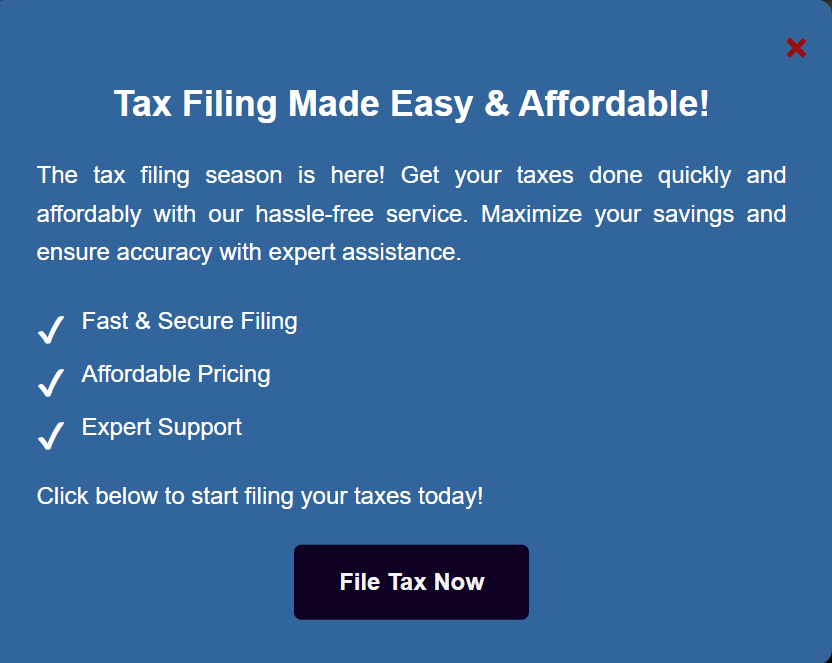Navigating the 2024 Canadian Tax Season: What You Need to Know
FinPro Consulting Limited - 15 February 2025
As the 2024 Canadian tax season approaches, it’s important for individuals and businesses alike to prepare for filing their taxes. The tax process can seem overwhelming, but with the right knowledge and preparation, you can ensure a smooth experience. Whether you're filing as an individual, self-employed, or a business owner, this guide outlines the key changes and tips to help you navigate the 2024 tax season effectively.
1. Key Deadlines for 2024 Tax Filing
For most individuals, the deadline to file taxes for the 2023 tax year is April 30, 2024. If you are self-employed or have a spouse or common-law partner who is self-employed, the filing deadline is extended to June 15, 2024. However, if you owe taxes, the payment deadline remains April 30, so it’s essential to pay any balance owing on time to avoid late fees or interest charges.
Corporations in Canada generally have their own filing deadlines, depending on their fiscal year end. Most corporate returns are due six months after the end of the corporation’s fiscal year, so businesses need to be aware of their specific deadlines.
2. Changes to Tax Rates and Credits
As of 2024, there are several important changes to Canadian tax rates and credits that taxpayers should be aware of:
- Carbon Tax Increase: The federal carbon tax is set to increase in 2024, which may impact the cost of goods and services. While the tax itself is aimed at reducing carbon emissions, Canadians in all provinces should be mindful of its potential effects on household budgets.
- Tax-Free Savings Account (TFSA) Contribution Limit: The contribution limit for the TFSA will increase to $7,000 for 2024. This is a great opportunity for Canadians to maximize their savings in a tax-free account. Keep in mind that any over-contribution to the TFSA will result in penalties, so it’s important to track your contributions carefully.
- Provincial Tax Changes: Several provinces have introduced changes to provincial tax rates, tax credits, or rebates. For example, Ontario has made adjustments to its provincial income tax brackets. Be sure to review the updates for your specific province to understand how these changes may impact your tax situation.
3. Important Deductions and Credits to Maximize
To reduce your tax liability, it’s essential to take advantage of various deductions and credits available to you. Common tax-saving opportunities include:
- RRSP Contributions: Contributing to your Registered Retirement Savings Plan (RRSP) can help reduce your taxable income. Contributions made up to the deadline will count for the 2023 tax year, which can provide immediate tax relief.
- Child Care Expenses: If you incurred child care expenses in 2023, be sure to claim them. The Canadian government offers tax relief for parents who need to pay for child care services while working or pursuing education.
- Medical Expenses: Many Canadians may not be aware that they can claim medical expenses for themselves, their spouse, and their dependents. Be sure to track any medical costs, including prescription drugs, dental services, and other health-related expenses.
4. Filing Taxes Electronically
The Canada Revenue Agency (CRA) encourages taxpayers to file their taxes electronically, as it is faster and more efficient. Using certified software programs or seeking the assistance of a tax professional can help you navigate the tax filing process with ease. Filing electronically also speeds up the process of receiving any refunds, which many Canadians rely on to kick-start their financial year.
5. Consider Hiring a Professional
If your tax situation is complex—such as owning a business, having multiple income streams, or experiencing significant life changes—consider seeking the help of a tax professional. An experienced accountant can help you optimize your return and ensure that you are taking full advantage of available credits and deductions.
Pro Tips:
The 2024 Canadian tax season may present some changes, but with proper planning and awareness of the latest updates, you can stay ahead of the game. By understanding the deadlines, tax rates, and credits that apply to your situation, you can navigate tax season with confidence and make sure you maximize your return.
Be proactive, keep track of your financial documents, and don’t hesitate to seek professional help if needed. Remember, proper tax preparation not only helps you avoid penalties, but it also allows you to keep more of your hard-earned money.
Visit https://finproconsult.ca/tax-planning/ to book your appointment with our Tax Expert!!

